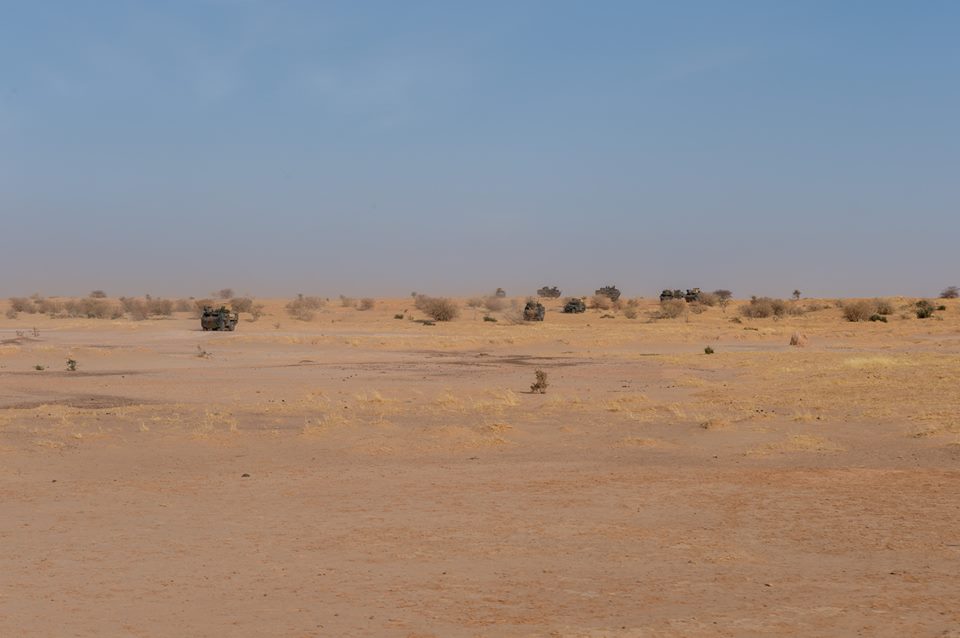Brexit makes you blind
(B2) European leaders spent a big evening and a good part of the night from Wednesday to Thursday staring at each other's navels. This time, it is the British Brexit which is at the heart of the psychodrama. During all this time, the '27' have not found a few minutes to discuss two or three vital international subjects

Notable upheavals
One can only be astonished, perplexed, even furious in front of such an absence. Such inconsistency, in the face of current upheavals, is culpable. We can identify three subjects that would have deserved an exceptional summit (1).
1° The 'southern belt' of Europe is in turmoil
Sudan, where Omar Al-Béchir seemed unstoppable among the unstoppable, is teetering. Algeria, in lethargy for several years, is waking up. The departure of the mute president Abdelaziz Bouteflika is recorded. But his succession is still dotted... Libya is sinking into a civil war. General Haftar, supported by certain Arab allies (Egypt, United Arab Emirates) - and with the implicit consent of both Saudi Arabia and Russia - has set out to attack the power of Tripoli, determined to shake it up, failing to be able to conquer it. On all these issues, the European reaction remains poorly adapted to the issues.
2° The peace process in the Middle East is in a coma overwhelmed
Israeli Prime Minister Benjamin Netanyahu's announcement to annex the West Bank drives one more nail in the coffin of the Middle East peace process. The two-state solution — backed at arm's length by the Europeans — is not far away, it seems buried. No alternative to this process has been offered by the Europeans, while Bibi is well placed for a new mandate.
3° Russia in ambush
At all the crossroads of European politics, we find... Russia in ambush. It doesn't matter if it's Africa, the Middle East, or even Venezuela. At some point, it would be necessary to break through the policy of neither nor: neither outstretched hand nor fierce adversity. It is a question of engaging in a strategic dialogue with Moscow, without however renouncing the language of condemnation of certain acts, in order to avoid regular obstacles.
Necessary guidance from Chiefs
All these points should have given rise to a discussion, lively if necessary, between Heads of State and Government, based on option papers. It is only at their level that significant political impetus can and must be given. Diplomats - or other crisis management actors - can propose ideas or set projects to music. But they need political orientations, guidelines.
Repeated mistakes
The 28 thus repeat the fatal error of the 2010s, or even the 1990s (see box)!
The position of the ostrich on Libya
Obsessed by the Greek financial crisis (which was serious), they did not want to clearly face their differences on the intervention in Libya in 2011, and after Gaddafi. They did not take head on the reconstruction of a Libyan model, despite some declarations of good intentions, leaving it to the good care of other actors (UN, etc.).
Forgetting Syria
In 2012, bis repeated. Divized on the war in Syria (for or against Bashar), they 'forgot' this item from their agenda, contenting themselves from time to time with a declaration, or with sanctioning Syrian officials. A cautery on a wooden leg. They have, in fact, withdrawn from this area, leaving it to Turkey, Iran and Russia to wage war... and peace. They then refused to see the refugee crisis, and the migration that this could entail (1).
... resulting in a political crisis
This migration crisis of 2015 was extremely predictable. And everything that was done then in disaster could have been prepared, planned ahead. It has led to a political upheaval in Europe, a break, which is as much or even more damaging for the European Union than the departure of the United Kingdom or the Greek financial crisis, ultimately.
A tacit strategic erosion
What just happened at the European summit on April 10 — the collective blindness of the 28 Heads of State and Government to their close neighborhood — is irresponsible. This contributes to the slow but certain erasure of European weight in the world. There is no point in boasting about 'strategic autonomy' or 'European values' if it is to achieve this absurd result.
Only one cause: internal
It is useless to accuse Donald Trump, Vladimir Putin or any others of this erasure. The cause is only internal. If the Europeans persist in this absurdity, the strategy of Theresa May and the British will ultimately have won: leaving Europe only as the chief steward of domestic economic issues and depriving it of any ability to act at global.
A necessity: change processor
The days of raising one issue after another are over. We cannot stay focused for months (or even years) on an internal problem, quickly dealing with external problems. Because they are the prefiguration of the following (internal) crisis. Heads of State and Government must change their processor, go from monotasking to multitasking, be able to evoke a whole series of successive problems, lay the foundations for a realistic strategy. Faced with European differences, which are very real, we must come out on top, propose new approaches, rather than take refuge behind declarations that no longer carry weight in today's world.
(Nicolas Gros-Verheyde)
The lesson of Yugoslavia did not serve
In the 1990s, we witnessed the same phenomenon. The Twelve (at the time), all attentive to the creation of their baby – the single currency – had somewhat abandoned the will to act on their close neighbours, Yugoslavia which was on fire. Contrary to what is often said, the European Community initially reacted rather well to the crisis with the meager means from which it benefited. The scale of the reflection as well as the action undertaken was, in fact, far superior to what has happened in recent years in Libya and Syria. But she had then 'given up' in front of the amplitude of the crisis and because of internal problems which seemed stronger to her. At the end of this bloody war in the Balkans which plunged part of Europe into mourning, lessons had been learned. We said: 'never again'. External tools and means of action have been put in place. They are available today... But we don't use them or use them too little.
(1) Other subjects are also worrying. The situation in Mali and Burkina-Faso (countries of emigration) is becoming increasingly worrying. We are not immune to additional upheavals, coups d'etat or others that take us back a few years.

